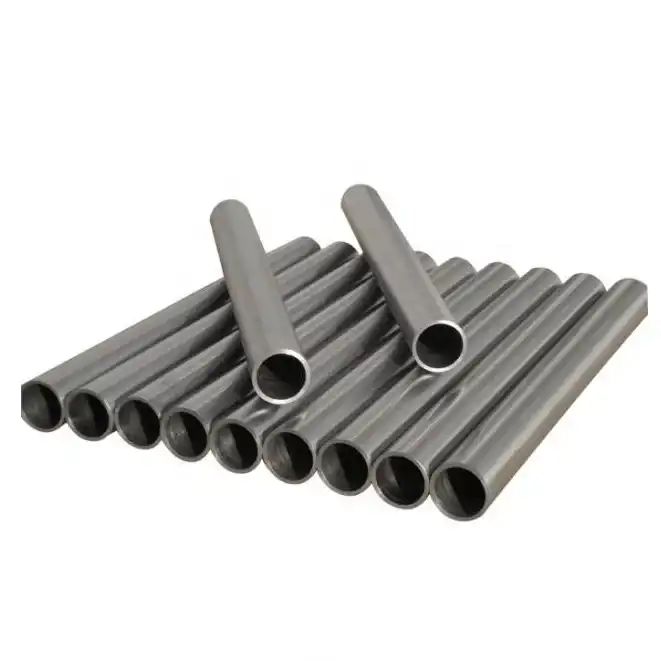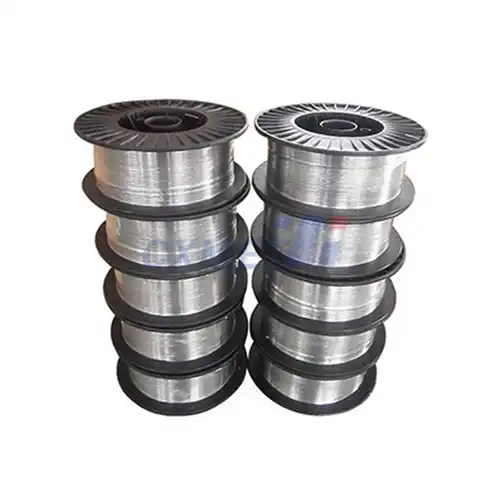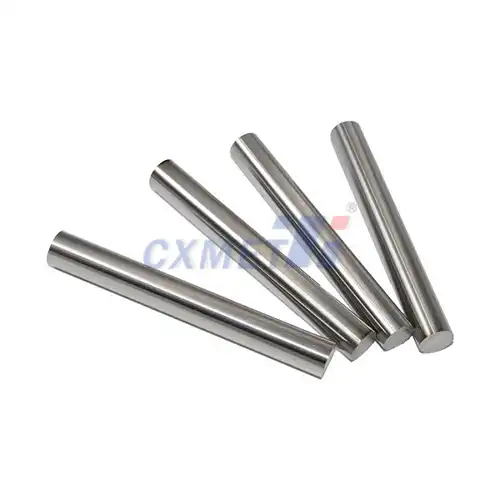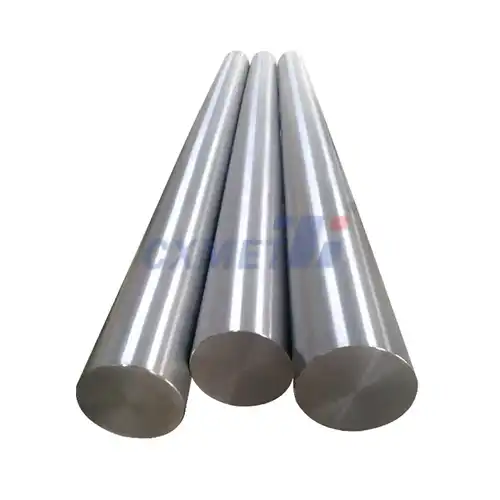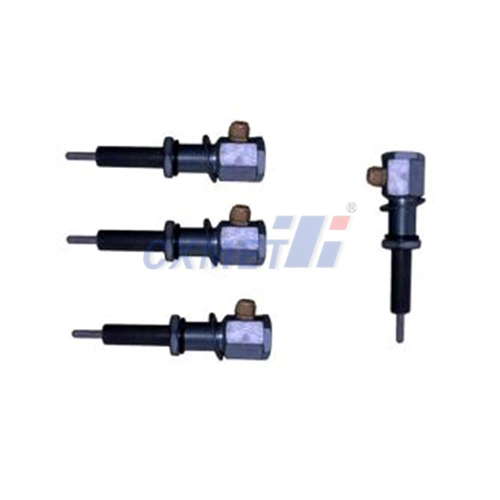- English
- French
- German
- Portuguese
- Spanish
- Russian
- Japanese
- Korean
- Arabic
- Greek
- German
- Turkish
- Italian
- Danish
- Romanian
- Indonesian
- Czech
- Afrikaans
- Swedish
- Polish
- Basque
- Catalan
- Esperanto
- Hindi
- Lao
- Albanian
- Amharic
- Armenian
- Azerbaijani
- Belarusian
- Bengali
- Bosnian
- Bulgarian
- Cebuano
- Chichewa
- Corsican
- Croatian
- Dutch
- Estonian
- Filipino
- Finnish
- Frisian
- Galician
- Georgian
- Gujarati
- Haitian
- Hausa
- Hawaiian
- Hebrew
- Hmong
- Hungarian
- Icelandic
- Igbo
- Javanese
- Kannada
- Kazakh
- Khmer
- Kurdish
- Kyrgyz
- Latin
- Latvian
- Lithuanian
- Luxembou..
- Macedonian
- Malagasy
- Malay
- Malayalam
- Maltese
- Maori
- Marathi
- Mongolian
- Burmese
- Nepali
- Norwegian
- Pashto
- Persian
- Punjabi
- Serbian
- Sesotho
- Sinhala
- Slovak
- Slovenian
- Somali
- Samoan
- Scots Gaelic
- Shona
- Sindhi
- Sundanese
- Swahili
- Tajik
- Tamil
- Telugu
- Thai
- Ukrainian
- Urdu
- Uzbek
- Vietnamese
- Welsh
- Xhosa
- Yiddish
- Yoruba
- Zulu
What is the Corrosion Resistance of Grade 5 Titanium Alloy Tube?
2025-01-06 15:04:04
Grade 5 titanium alloy, also known as Ti-6Al-4V, is renowned for its exceptional corrosion resistance, making it a popular choice in various industries, including aerospace, marine, and medical applications. This alloy combines the strength of titanium with the added benefits of aluminum and vanadium, resulting in a material that offers superior resistance to corrosion in diverse environments. The corrosion resistance of Grade 5 titanium alloy tubes is a crucial factor in their widespread use, as it ensures longevity and reliability in demanding applications.

How does Grade 5 titanium alloy compare to other materials in terms of corrosion resistance?
Grade 5 titanium alloy demonstrates superior corrosion resistance compared to many other materials, including stainless steel and aluminum alloys. This exceptional property is primarily due to the formation of a stable, continuous, and highly adherent oxide film on the surface of the alloy when exposed to oxygen. This protective layer, primarily composed of titanium dioxide (TiO2), acts as a barrier against corrosive agents, effectively preventing further oxidation of the underlying metal.
When comparing Grade 5 titanium alloy to stainless steel, one of the most commonly used corrosion-resistant materials, the titanium alloy often outperforms in several aspects. While both materials form passive oxide layers, titanium's oxide film is more stable and resistant to breakdown in aggressive environments. Grade 5 titanium alloy exhibits excellent resistance to pitting and crevice corrosion, which are common issues with stainless steel in chloride-rich environments, such as seawater.
In comparison to aluminum alloys, Grade 5 titanium offers significantly higher corrosion resistance, especially in acidic and alkaline environments. Aluminum alloys are susceptible to galvanic corrosion when in contact with other metals, whereas Grade 5 titanium is much less prone to this type of corrosion due to its nobility in the galvanic series.
The corrosion resistance of Grade 5 titanium alloy is particularly noteworthy in oxidizing environments, where it outperforms most other metals and alloys. This includes resistance to nitric acid, chlorine gas, and other oxidizing media that would rapidly corrode many other materials. However, it's important to note that while Grade 5 titanium alloy has excellent overall corrosion resistance, it may be susceptible to attack by reducing acids, such as hydrochloric acid, under certain conditions.
In marine environments, Grade 5 titanium alloy tubes exhibit exceptional resistance to seawater corrosion, making them ideal for offshore oil and gas applications, desalination plants, and marine engineering projects. The alloy's resistance to stress corrosion cracking in chloride environments further enhances its suitability for these applications.
What factors affect the corrosion resistance of Grade 5 titanium alloy tubes?
Several factors can influence the corrosion resistance of Grade 5 titanium alloy tubes, and understanding these factors is crucial for optimizing their performance in various applications. The primary factors affecting corrosion resistance include environmental conditions, surface finish, heat treatment, and the presence of impurities or contaminants.
Environmental conditions play a significant role in determining the corrosion behavior of Grade 5 titanium alloy. While the alloy performs exceptionally well in most environments, extreme conditions can impact its corrosion resistance. For instance, high temperatures can accelerate corrosion processes, and certain chemical environments, such as strong reducing acids, can compromise the protective oxide layer. The pH of the surrounding medium also affects corrosion resistance, with the alloy generally performing better in neutral to slightly acidic or alkaline conditions.
Surface finish is another critical factor influencing corrosion resistance. A smooth, polished surface typically provides better corrosion resistance than a rough or damaged surface. This is because a smooth surface offers fewer sites for corrosion initiation and allows for the formation of a more uniform protective oxide layer. Additionally, surface treatments such as passivation can enhance the natural oxide film, further improving corrosion resistance.
Heat treatment and processing history can also affect the corrosion resistance of Grade 5 titanium alloy tubes. Proper heat treatment ensures optimal microstructure and distribution of alloying elements, which contribute to corrosion resistance. Conversely, improper heat treatment or processing can lead to microstructural changes or the formation of undesirable phases that may reduce corrosion resistance.
The presence of impurities or contaminants on the surface of Grade 5 titanium alloy tubes can significantly impact their corrosion resistance. Iron contamination, for example, can lead to the formation of localized corrosion sites. Therefore, maintaining cleanliness during manufacturing, handling, and installation processes is crucial for preserving the alloy's corrosion-resistant properties.
It's also worth noting that the specific composition within the allowable range for Grade 5 titanium alloy can influence corrosion resistance. While the general composition is standardized, slight variations in alloying element percentages can affect performance in specific environments.
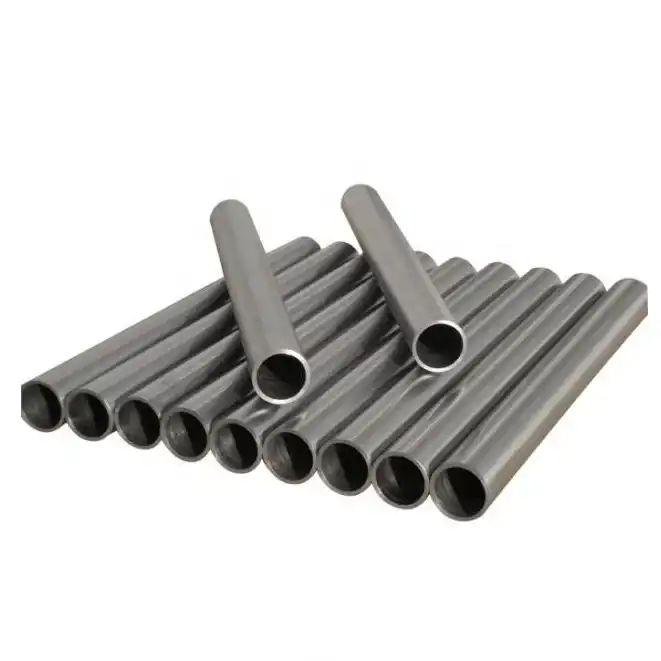
How can the corrosion resistance of Grade 5 titanium alloy tubes be improved or maintained?
Maintaining and improving the corrosion resistance of Grade 5 titanium alloy tubes is essential for ensuring their longevity and performance in various applications. Several strategies can be employed to enhance or preserve the inherent corrosion resistance of this alloy.
One of the most effective methods for improving corrosion resistance is surface treatment. Passivation is a common technique used to enhance the natural oxide layer on titanium alloys. This process typically involves exposing the surface to an oxidizing acid, such as nitric acid, which removes surface contaminants and promotes the formation of a more stable and uniform protective oxide film. Another surface treatment method is anodizing, which creates a thicker and more durable oxide layer through an electrochemical process. Anodized Grade 5 titanium alloy tubes can exhibit even greater corrosion resistance, particularly in harsh environments.
Proper cleaning and handling procedures are crucial for maintaining the corrosion resistance of Grade 5 titanium alloy tubes. Regular cleaning to remove contaminants, especially those containing iron or other metals that could promote galvanic corrosion, is essential. Using appropriate cleaning agents that do not compromise the protective oxide layer is important. Additionally, avoiding contact with carbon steel tools or equipment during handling and installation can prevent iron contamination, which could lead to localized corrosion.
Heat treatment and processing control play significant roles in optimizing corrosion resistance. Ensuring that the alloy is properly heat-treated according to industry standards helps maintain an optimal microstructure that contributes to corrosion resistance. Stress-relieving treatments can also be beneficial, particularly for parts that have undergone significant forming or machining operations, as residual stresses can sometimes increase susceptibility to stress corrosion cracking.
Coating technologies can be employed to further enhance the corrosion resistance of Grade 5 titanium alloy tubes in specific applications. While the alloy already possesses excellent corrosion resistance, certain coatings can provide additional protection in extremely aggressive environments or when extended service life is required. For instance, ceramic coatings or specialized polymer coatings can be applied to provide an extra barrier against corrosive media.
Design considerations also play a role in maintaining corrosion resistance. Proper design of systems incorporating Grade 5 titanium alloy tubes should aim to minimize crevices, ensure adequate drainage, and avoid stagnant areas where corrosive media could accumulate. Additionally, when joining Grade 5 titanium alloy tubes to other components, careful selection of compatible materials and appropriate joining methods is essential to prevent galvanic corrosion.
Regular monitoring and inspection of Grade 5 titanium alloy tubes in service can help identify any early signs of corrosion or degradation, allowing for timely intervention. Non-destructive testing methods, such as ultrasonic testing or eddy current inspection, can be employed to assess the condition of the tubes without compromising their integrity.
In conclusion, the exceptional corrosion resistance of Grade 5 titanium alloy tubes makes them an excellent choice for a wide range of demanding applications. By understanding the factors that affect corrosion resistance and implementing appropriate maintenance and improvement strategies, the performance and longevity of these tubes can be optimized. As technology advances, new surface treatment methods and coating technologies may further enhance the already impressive corrosion resistance of Grade 5 titanium alloy, expanding its potential applications in even more challenging environments.
At SHAANXI CXMET TECHNOLOGY CO., LTD, we take pride in our extensive product range, which caters to diverse customer needs. Our company is equipped with outstanding production and processing capabilities, ensuring the high quality and precision of our products. We are committed to innovation and continuously strive to develop new products, keeping us at the forefront of our industry. With leading technological development capabilities, we are able to adapt and evolve in a rapidly changing market. Furthermore, we offer customized solutions to meet the specific requirements of our clients. If you are interested in our products or wish to learn more about the intricate details of our offerings, please do not hesitate to contact us at sales@cxmet.com. Our team is always ready to assist you.
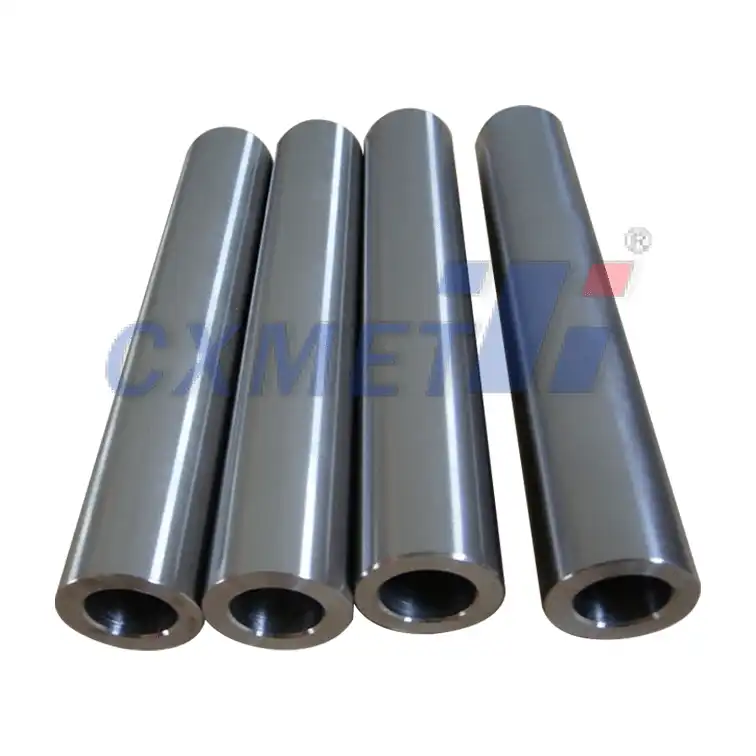
References:
- ASM International. (2005). ASM Handbook, Volume 13B: Corrosion: Materials.
- Schutz, R. W., & Thomas, D. E. (1987). Corrosion of titanium and titanium alloys. ASM International, Metals Handbook, 13, 669-706.
- Antunes, R. A., & de Oliveira, M. C. L. (2012). Corrosion fatigue of biomedical metallic alloys: Mechanisms and mitigation. Acta Biomaterialia, 8(3), 937-962.
- Titanium Information Group. (2021). Corrosion Resistance of Titanium. https://www.titanium.org/page/CorrosionResistance
- ASTM International. (2020). ASTM B265 - Standard Specification for Titanium and Titanium Alloy Strip, Sheet, and Plate.
- Revie, R. W., & Uhlig, H. H. (2008). Corrosion and corrosion control: an introduction to corrosion science and engineering. John Wiley & Sons.
- Donachie, M. J. (2000). Titanium: a technical guide. ASM international.
- Boyer, R., Welsch, G., & Collings, E. W. (1994). Materials properties handbook: titanium alloys. ASM international.
- Rack, H. J., & Qazi, J. I. (2006). Titanium alloys for biomedical applications. Materials Science and Engineering: C, 26(8), 1269-1277.
- Peters, M., Kumpfert, J., Ward, C. H., & Leyens, C. (2003). Titanium alloys for aerospace applications. Advanced engineering materials, 5(6), 419-427.
